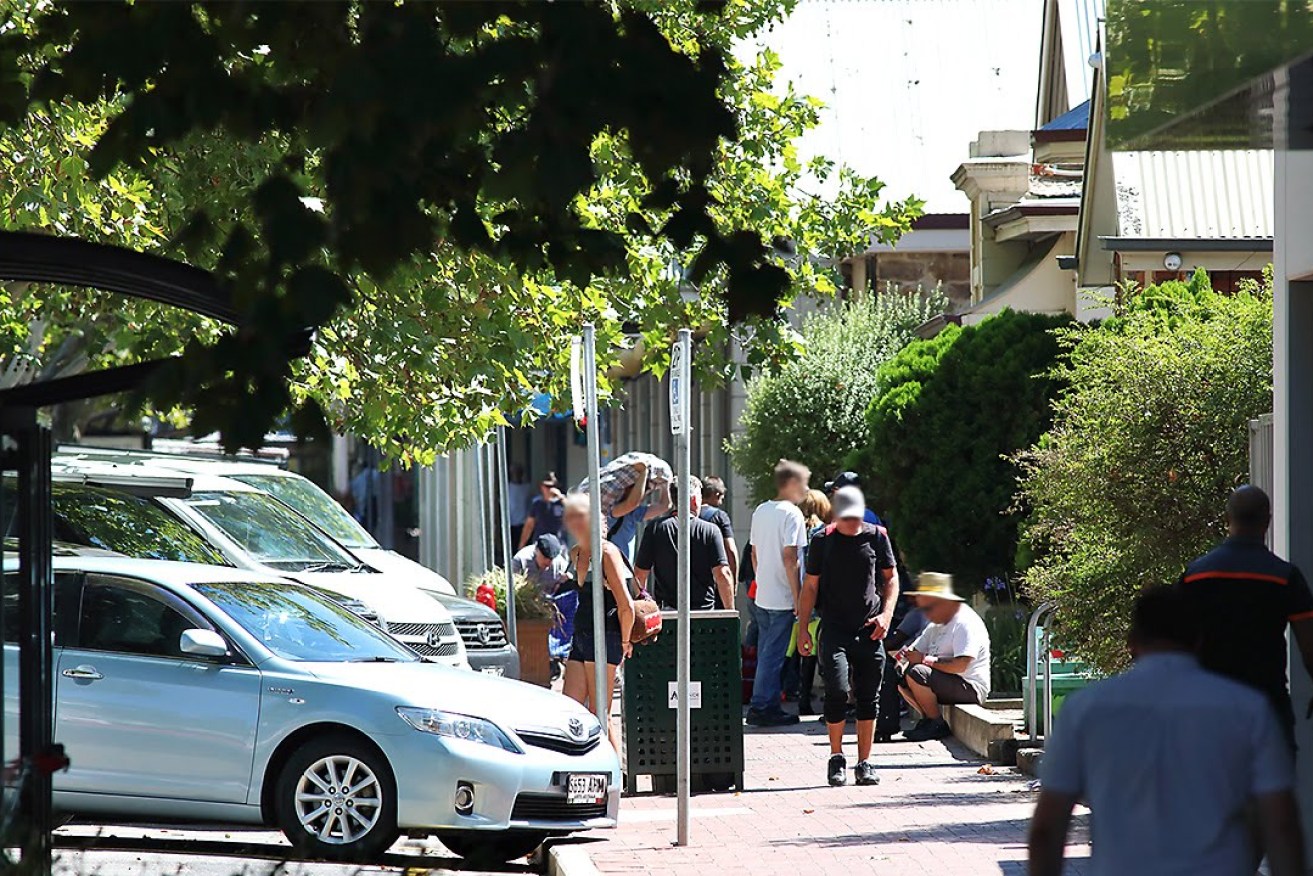Adelaide’s homeless: beyond the stereotypes and simplistic solutions
The face of homelessness in South Australia has dramatically changed and South Australia needs a collective approach to find a solution, explains Hutt St Centre CEO Ian Cox.

Photo: Tony Lewis/InDaily
The stereotype of a rough sleeper being male with alcohol issues and little or no employment history is not accurate.
The cold hard facts are that over the past five years homelessness has increased by a staggering 14 per cent nationally. This is now a widespread societal issue and is being seen in many areas of Adelaide, not just isolated precincts.
The long-held view is that many people who have fallen into homelessness have lower literacy levels than other people but, again, recent evidence suggests that this stereotype is not correct. For example, in January 2018, participants in the Hutt St Centre’s Aspire Program had a higher level of educational attainment and employment history than participants in previous programs.
An increase in homelessness presents new challenges for Adelaide and, indeed, the Hutt St Centre. For example, the rise in women and young families sleeping rough has grown to the extent that Hutt St Centre now needs to provide a separate, discrete space for women on site. Consistent with ABS Census data, 43 per cent of people now being supported through the centre are women who have experienced domestic or family violence.
Homelessness in South Australia is not something that is simple or easily defined, nor an issue that we can contain to one street or area.
Hutt St Centre has been proudly serving the Adelaide community for 64 years. We are passionate about transforming and rebuilding the lives of the most disadvantaged and vulnerable people in South Australia. It’s rewarding and powerful work that influences lives and, importantly, people’s futures.
In recent months there has been debate about anti-social behaviour along Hutt Street. At the centre, we strive to provide the best possible service in the safest environment possible and while this behaviour disappoints us as much as anyone, it also drives us to work on maintaining and creating stronger links within our community to build better futures. We take anti-social acts very seriously, regardless of the offender’s living situation.
The issue of homelessness is so much broader than any stereotype or location. A recent suggestion to move the centre is not a solution.
The centre has for a long time worked closely with the local traders and SA Police to create a thriving and positive precinct. Homelessness is a widespread issue that can be seen increasingly on many other streets in Adelaide and that is what the conversation should be about. This, of course, doesn’t mean we should ignore future actions and measures as we work with all parties to find solutions. Hutt St Centre is one of many service providers in this space who all face very similar challenges.
An estimated 116,000 people are homeless across Australia. We all need to take a level of responsibility for tackling the issue on a state and national level. A solution will come from tangible action that flows from strategic thinking with the government, councils, traders and other community influencers.
Pointing the finger is not helpful – it’s counterproductive.
Housing affordability and supply on a national level also needs to be addressed. Closer to home, the solution requires a change of thinking from South Australians and decision-makers.
The issue of homelessness is so much broader than any stereotype or location. A recent suggestion to move the centre is not a solution. With a long history and a global reputation in homeless support services, Hutt St Centre proudly holds its position as a vital part of the fabric of Hutt St and the local community.
A small number of anti-social behaviours do not justify moving an institution that in 2017 housed 570 clients, assisted more than 150 people to find employment and more than 50 people with further education, in addition to connecting nearly 3500 people to health and medical services.
As an agent of change, the centre sees homelessness as an issue that requires clear, strategic thinking and a collective mindset from decision-makers and influencers. It’s about uniting to form a plan to give our homeless people the best chances of living the kind of lives that are their basic human right.
Homelessness can happen to anyone and we can end it one person at a time. Until we do, we’ll be here for our clients because at Hutt St Centre we don’t give up.
Ian Cox is the CEO of Hutt St Centre.




